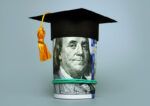How Brazil, Argentina helped seal EU-Mercosur deal
()
Brasília (AFP) – A new pro-market government in Brazil and the looming threat of Argentina swinging to the left in October elections helped get the long-awaited EU-Mercosur trade deal over the line, say analysts.
– Brazil opens up –
After decades of left-wing rule in Brazil, center-left ex-president Michel Temer is widely credited with setting the stage for reaching Friday’s blockbuster trade deal.
In January, new pro-business President Jair Bolsonaro and his free-marketeer economy minister Paulo Guedes capitalized on Temer’s efforts to open up Brazil and spurred negotiations that had been dragging on for 20 years.
Bolsonaro’s far-right government entrusted “the more pragmatic, professional officials” with striking a deal, said Peter Hakim of the Washington-based think tank Inter-American Dialogue.
“Brazil has agreed to sharp cuts in tariff levels on imports from the EU and has promised to remove or reduce other elements of its still highly-protectionist trade and investment policies,” Hakim told AFP.
In doing so, the government has sent a clear signal to the world that Brazil “is more open for business than ever before,” he said.
“It is prepared to do what it takes to expand its trade across the globe and is making a good start toward reforming the economy.”
This should help Bolsonaro in Brazil’s hostile Congress where he is struggling to push through his economic reform agenda, including an ambitious overhaul of the country’s bloated pension system.
– Argentina vote looms –
Upcoming elections in Argentina injected a sense of urgency into negotiations.
Center-right President Mauricio Macri, who holds the rotating presidency of the Mercosur bloc, will contest October’s ballot against left-wing Alberto Fernandez whose running mate is former leader Cristina Kirchner.
There were fears that a Fernandez-Kirchner victory could derail the trade talks.
“She (Kirchner) simply has limited regard for free trade and other principles of orthodox economics,” explained Hakim.
Monica de Bolle, a senior fellow at the Peterson Institute for International Economics, agreed.
“While Macri is president, the EU knows what to expect,” de Bolle told AFP.
The risk of US President Donald Trump igniting a trade war with the EU over tariffs also fueled efforts to seal an agreement, she added.
Disclaimer: Validity of the above story is for 7 Days from original date of publishing. Source: AFP.

